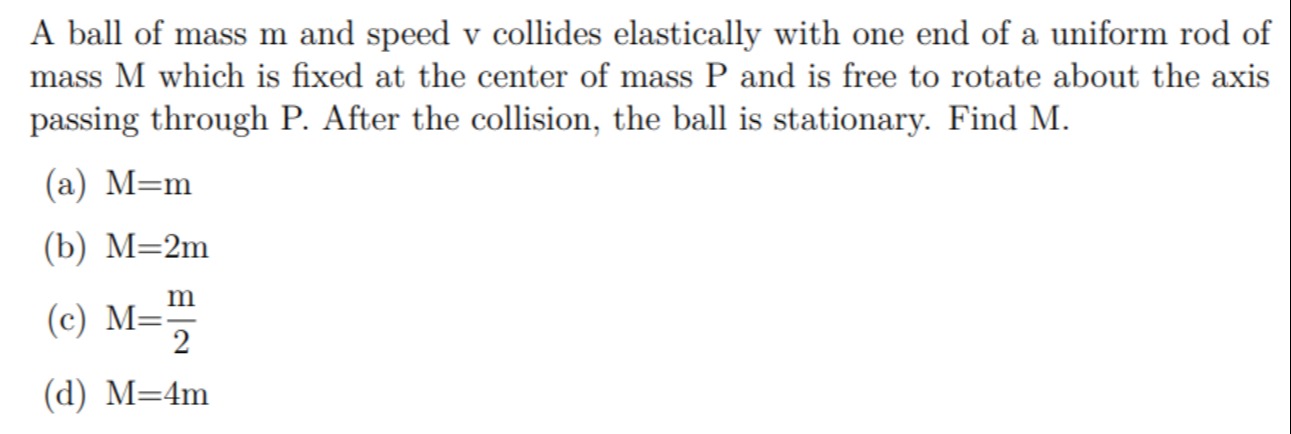Question
Question: A ball of mass m and speed v collides elastically with one end of a uniform rod of mass M which is f...
A ball of mass m and speed v collides elastically with one end of a uniform rod of mass M which is fixed at the center of mass P and is free to rotate about the axis passing through P. After the collision, the ball is stationary. Find M.

M=m
M=2m
M=2m
M=4m
M=4m
Solution
Assuming the rod is free to move on a frictionless surface and the collision is elastic, we apply conservation of linear momentum, conservation of angular momentum about the center of mass, and the definition of the coefficient of restitution (e=1 for elastic collision).
Let m be the mass of the ball, v its initial speed, M the mass of the rod, and L its length. After the collision, the ball is stationary (v′=0). Let VCM be the final velocity of the rod's center of mass and ω′ its final angular velocity.
- Conservation of linear momentum: mv=MVCM (since v′=0).
- Conservation of angular momentum about the center of mass P: mv(L/2)=IPω′=121ML2ω′.
- Coefficient of restitution e=1: The relative velocity of separation along the line of impact equals the relative velocity of approach. The velocity of the point of impact Q on the rod is vQ=VCM+ω′(L/2). vrel,i=v−0=v. vrel,f=vQ−v′=VCM+ω′(L/2)−0. So, v=VCM+ω′(L/2).
From (1), VCM=mv/M.
From (2), ω′=ML6mv.
Substitute into (3): v=Mmv+ML6mv2L=Mmv+M3mv=M4mv.
v=M4mv⟹M=4m.
This result is consistent with energy conservation as well.
